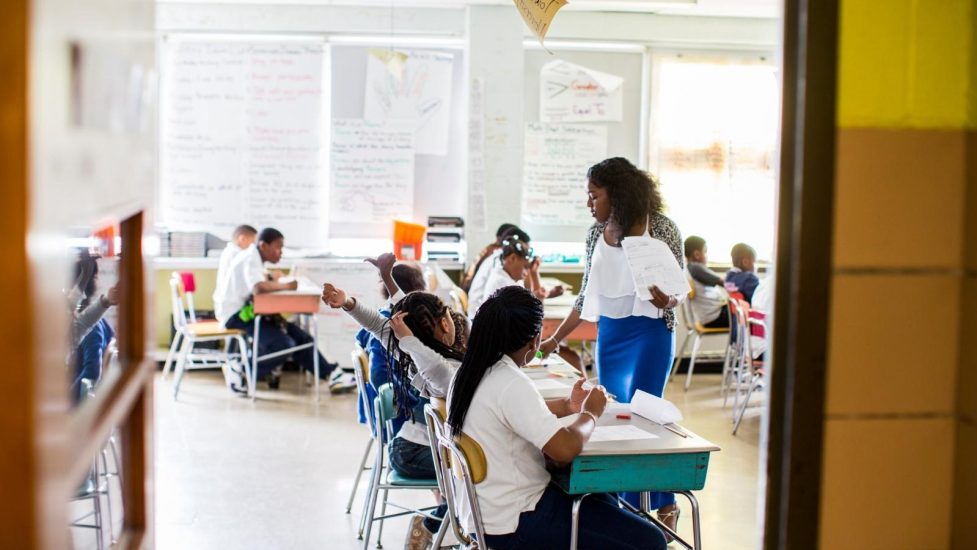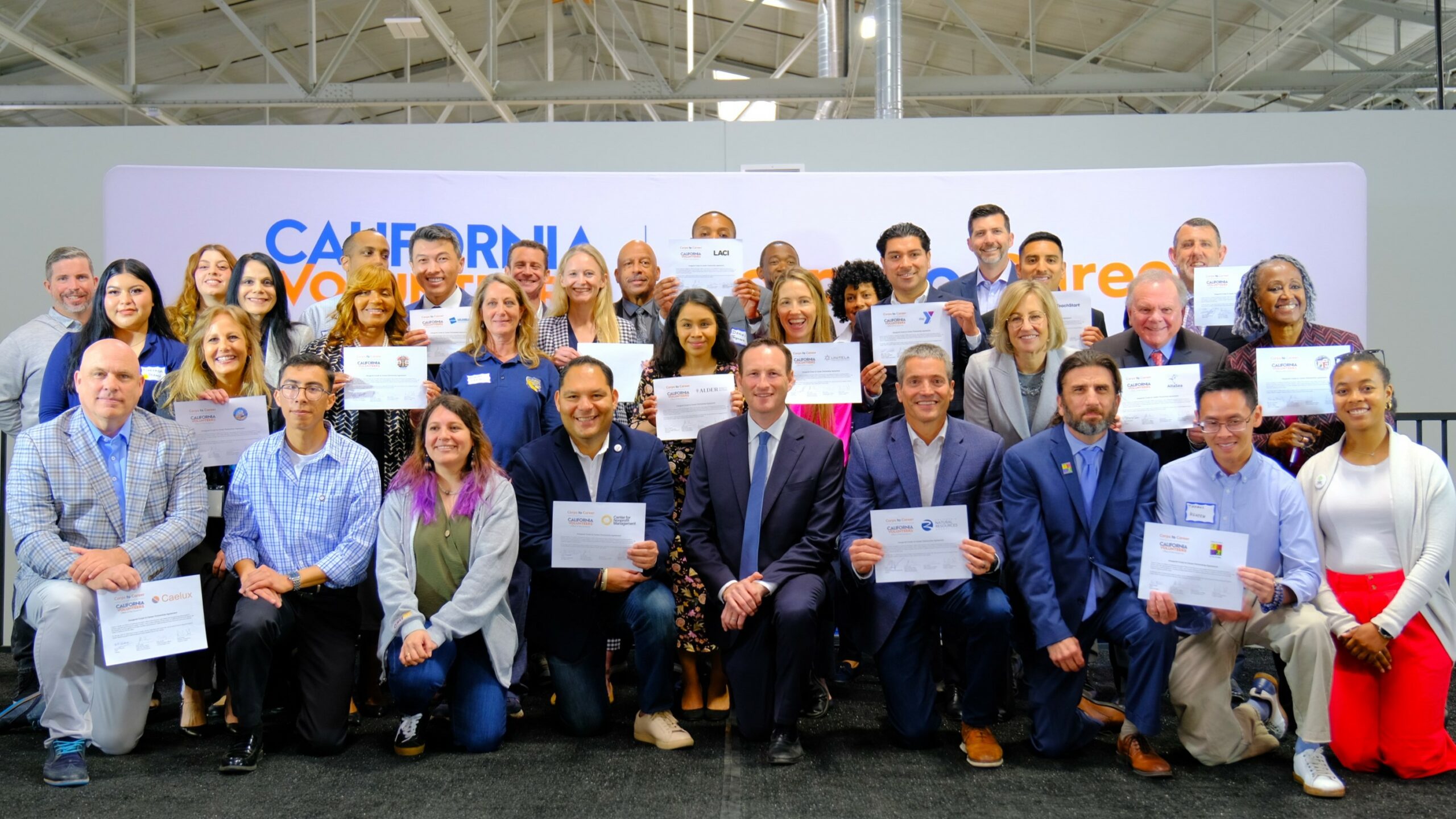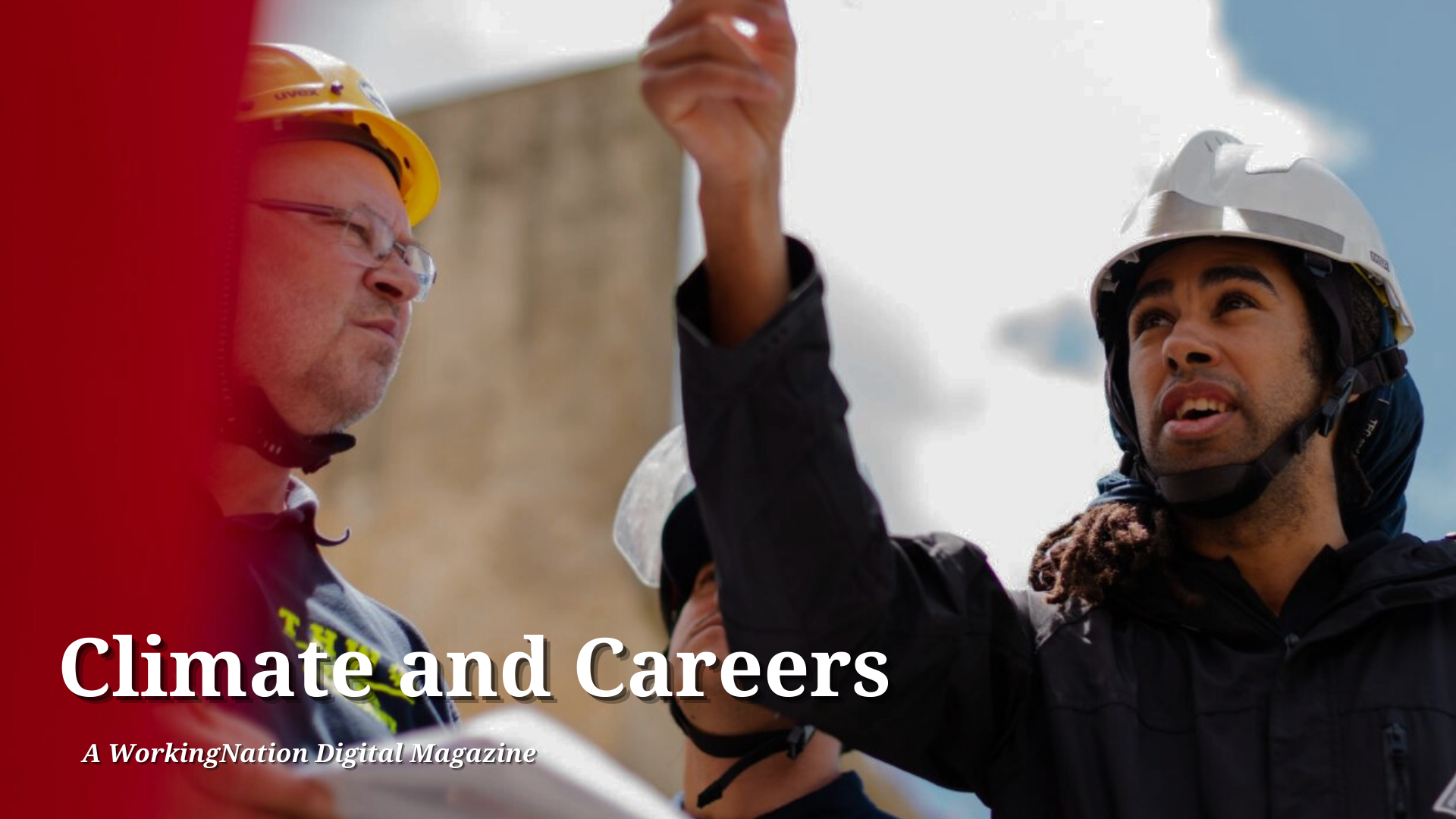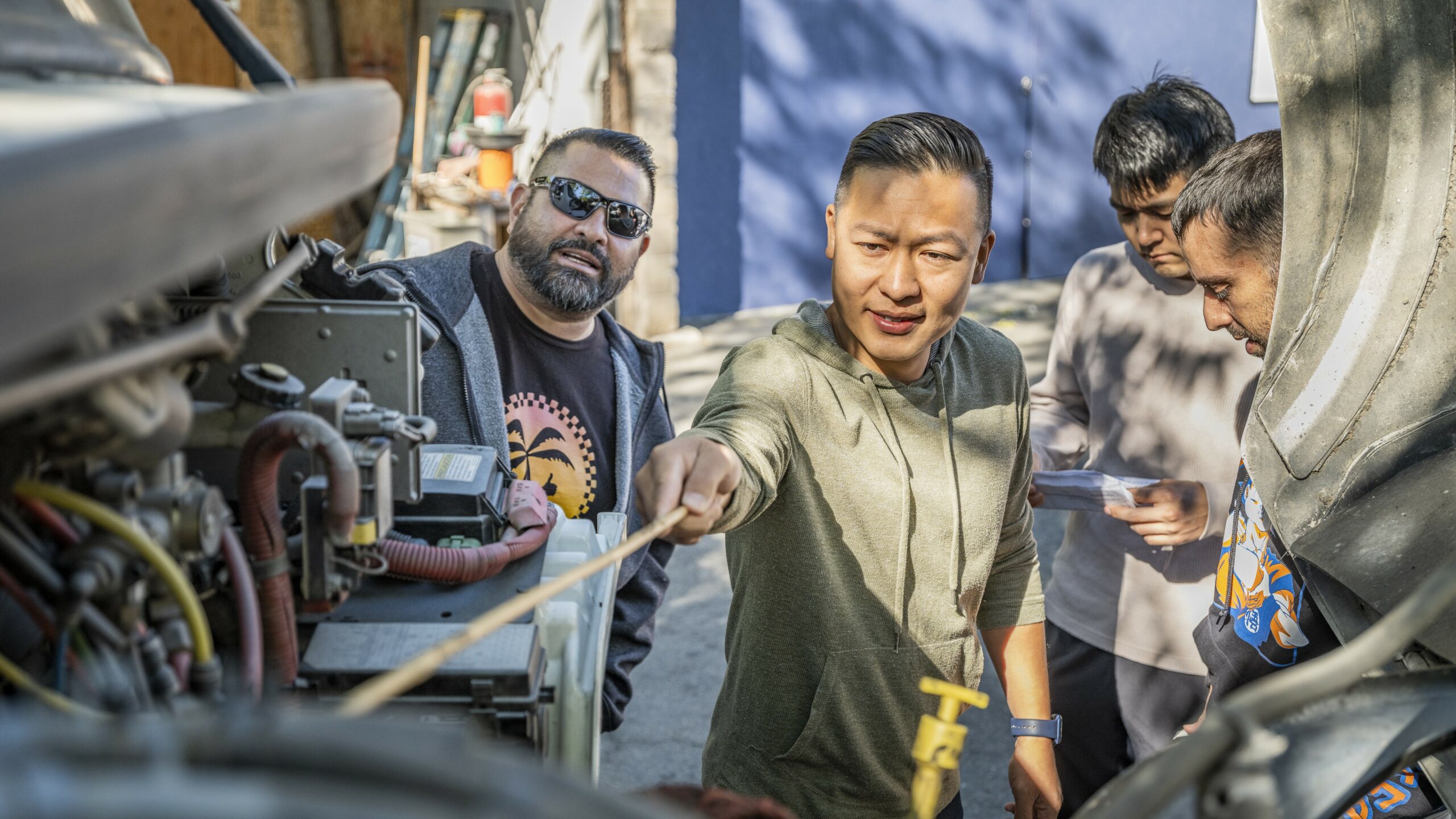Nonprofit TNTP says its time to rethink and overhaul the way students are being taught in our nation’s schools.
“Education is supposed to help kids move up and out of poverty and we know it’s actually not delivering on that promise. We try to help all students obtain that pathway of education being that great equalizer,” explains CEO Tequilla Brownie, Ed.D.,
TNTP consults with 300 school districts in 120 cities in 25 states and Washington, D.C. and has implemented programing in both teaching strategy and teacher training. The nonprofit describes its multi-state efforts as “partners for change in public education.”
“When I think about education today, one of the things that I’m struck by is the fact that our current design and our systems are actually outdated. They were designed centuries ago based on a factory mode,” says Brownie.

“The Carnegie Unit model does not align to the modern expectations of our nation’s parents, families, or our industry and workforce,” she adds.
“If we are able to retire that model that will actually create more space and resources for the types of innovations that we need to ensure that young people – before they leave the corridors of their K-12 system, access the tools and experiences that will set them on a better trajectory.”
TNTP (formerly The New Teacher Project) argues that students are missing out on four crucial resources – “grade-appropriate assignments, strong instruction, deep engagement, and teachers with high expectations.”
Brownie explains, “TNTP was founded in 1997 by teachers to really address our nation’s problem of ensuring that every student – irrespective of race, irrespective of zip code, or any other demographic variable – actually has access to a high-quality education that sets them on a path for upward mobility.”
‘All teachers, even is you’re great, need to keep getting greater’
“We’re operating in a world where professions are changing. The skills that are needed for tomorrow are different from the ones that we might have thought yesterday,” says TNTP partner Steven LaFemina whose geographic area of focus is the southeast region of the U.S.

He says, “All teachers, even if you’re great, need to keep getting greater, stay current with where the world is and how to support students, how to stay relevant in kids’ lives as their social cultural context changes, as well.”
Describing his own role, LaFemina says, “A partner role at TNTP means that you have shared responsibility for generating our partnerships throughout the region. It’s being in the community, meeting folks in the field, thinking through what partnerships we’ll have.”
“It’s also starting that work and leading that team to do the work. We’ll have directors that are doing the day-to-day who will really make sure that whatever we agreed upon with clients is what we deliver and then also talk to them about where they want to go next and how we can support.”
The Opportunity Myth
“We had a national report that came out a few years ago called The Opportunity Myth. It really unpacked from the student perspective what students’ experiences in schools were,” says LaFemina.
“It asked the question if students did what adults told them – if they just tried really hard –would they have all the opportunity that we promised, would they be able to get those careers that they’ve been dreaming of? We found [the answer] was ‘No.’ You would have students that would get A’s. They would be on track according to the expectations set out in their schools, but then when it came for true readiness, they weren’t and they couldn’t make that leap.”
LaFemina continues, “That has turned into a perspective on how we support teachers. When teachers believe in [the students] that really feeds into everything. If you think they can do it, there are certain actions you might take, explicitly or implicitly, to set then up for success.”

Access to Social Capital
Brownie says access to high quality teaching and learning is important, but more is required. “We know that kids need access to things like social capital. You get social capital by way of those experiential learning opportunities like internships, career-connected learning conversations with adults in various capacities.”
“But the key is that those things right now are happenstance. We don’t guarantee that every child leaves high school with the right set of skills, social capital, career-connected learning, and frankly, advising that’s going to help them connect their passions with the all the many different options of careers that are out there.”
She adds student introductions to careers must come at an early age. “Imagine how detrimental it is for students from poverty, students from marginalized communities being only exposed to a very limited number of career options or waiting until they’re in high school to even begin those conversations. Frankly, that’s too late.”
LaFemina points out, “TNTP recently has been really focused on expanding to do more employer outreach, really thinking about the jobs kids are going to have available for them tomorrow that can lead to upending generational poverty. We acknowledge that if we’re going to make sure that all students are set up for bright futures, it’s going to have to be a coalition of working with many more than just the school system.”
“My experiences are that high school juniors and seniors tend to pay more attention to what happens after high school graduation. When you talk about social capital, imagine having connections with someone in the industry in which you’d like to work,” says Chaney Mosley, a former director of career and technical education, as well as the Academies of Nashville with Metropolitan Nashville Public Schools.

He says, “We make a lot of investments in our lives as adults. Few people would purchase a car without taking it for a test drive or purchase a house without going through a walkthrough. But so often families and individuals make a significant investment in education without ever trying out the field in which they’re pursuing a major, or degree, or a credential. I think that career exploration, not only in high school, but also in middle and even elementary school is a really good step towards helping students eventually make informed decisions.”
Currently, Mosley is the president of the Association of Career & Technical Education (ACTE) and assistant professor of agricultural education at Middle Tennessee State University.
“Since I’ve left my post at Metro Nashville Public Schools, TNTP has become more involved in the career and technical education space. And that’s exciting,” says Mosley.
“I do know TNTP provides a tremendous amount of technical assistance to school systems, schools, and educators within those systems in the career and technical education space. That may be with finding high-quality curriculum, or providing leadership, or assistance on updating technology so that it’s relevant and aligns with a world of work. It could also be helping them conduct asset maps to discover what assets exist to help students explore careers at different levels or tapping into some of those community-based resources and industries to help find industry partnerships.”
One Teacher’s TNTP Experience
When Jenny Jones was in college, she was a Spanish major. Some years later, when one of her children was in preschool, Jones helped out as a substitute and says, “It just amazed me when these kids had those ‘Aha’ moments and I just wanted more of that.”

Today, Jones teaches seventh grade science to 56 students at Hancock County Middle School in Hancock County, Tennessee.
She notes regarding the typical curriculum, “With science, we usually use just textbooks. It is so boring in science to use a textbook. Science is supposed to be inquisitive. It’s supposed to be experiments.”
Jones says TNTP connected her to the OpenSciEd curriculum. “OpenSciEd is a program where they use a phenomena-based learning system. You show the students a phenomena and they start asking questions about it. Our first unit is chemical reactions and matter. I show them a bath bomb in water. So what makes it fizz? What gas is produced?”
She continues, “I’m not using workbooks at all. Everything we keep in a lab notebook that they produce. Before we started with TNTP and OpenSciEd, we were using the workbooks. This first nine weeks [of school], we’ll do 13 labs. I know we didn’t do that many the first year I taught with the workbooks.”
Jones says students are more interested in science because of the way she teaches. “It’s increased their engagement. Lots of times they say, ‘Hey, don’t tell anybody, but science is now my favorite subject.’ And to me, it’s more exciting. I prefer to do hands-on labs so it gets me more involved in my teaching.”
She says, “I hope [students will] take the way I teach this information and continue to have that curiosity, that interest, and want to know ‘Why’ and want to know ‘How’ – and that they’ll take that on and apply that to other subjects, too.”
Pushing an ‘ideas culture’
Mosley notes TNTP’s commitment to “equity, access, inclusion, and diversity.”
“Certainly, when you enter the workforce there’s a really good chance that you’re going to work with someone from a background and a cultural identity that differs from you. TNTP places a lot of emphasis on the importance of what I call global competency – ensuring that all learners have equitable access as best as they can ensure. I think that’s incredibly powerful and something that not every school or school system is focused on,” he says.
LaFemina adds, “I’ve described TNTP as an ‘ideas culture, a curious culture.’ One where if I have a thought, I’m encouraged to put it out there and to grapple with it. Imagine an organization where you have hundreds of those folks that are always exchanging in, a sometimes messy, but always exciting sort of way. I think that’s the kind of culture that reflects where we need to go in education.”
Brownie stresses the need for change, “The first thing to disrupt and to understand is that K-12 and education is not a K-12 problem. This is a national crisis, which means that all stakeholders need to be involved. Everyone from parents, students, and families to community leaders, community-based organizations, elected officials, business leaders, industry leaders, and our public entities, as well.”
“It’s going to take those cross-sector partnerships working to come together to redesign the very dramatic shifts that we need to actually make the vision to remove the predictability of race and poverty on student outcomes. To make that a reality, it’s going to take us working in partnership across sectors and at all levels.”
Brownie shares her personal experience, “I grew up in deep poverty in the rural south in Arkansas. I had a great public education experience, but I also received enrichment and supplemental experiences through various sources – both from my community and at my state level in Arkansas.”
“In middle school I went to NASA space camp and then came home to my house that didn’t have indoor plumbing. I was able to catapult literally from deep poverty in our nation’s poorest part of the country in the Mississippi River Delta to Yale University. When people ask me, ‘Is it possible to help kids from poverty escape it?’ I know, unassailably, the answer to that question is, ‘Yes.’” It is through academics. It is through these types of experiences that we’re talking about. That’s how we’re going to make that possible.”











